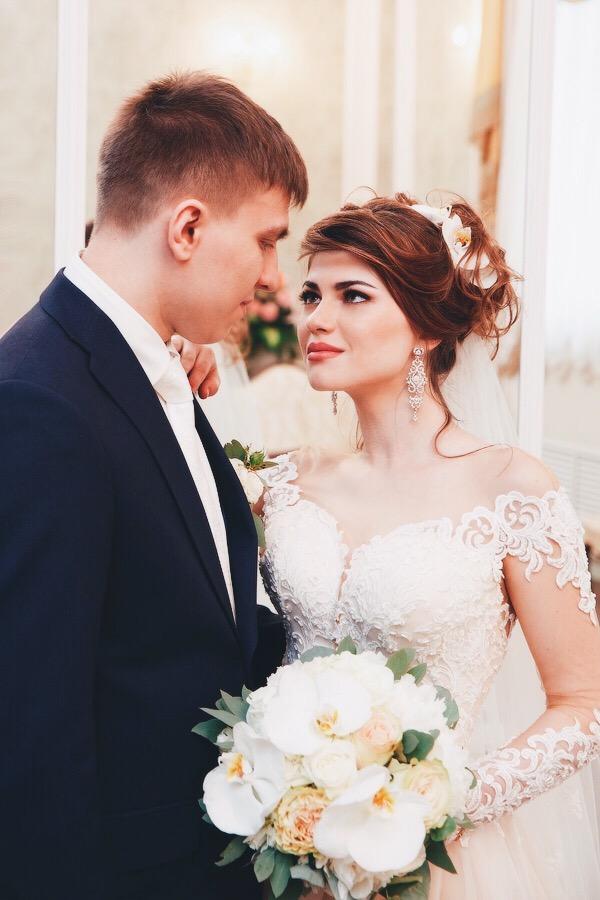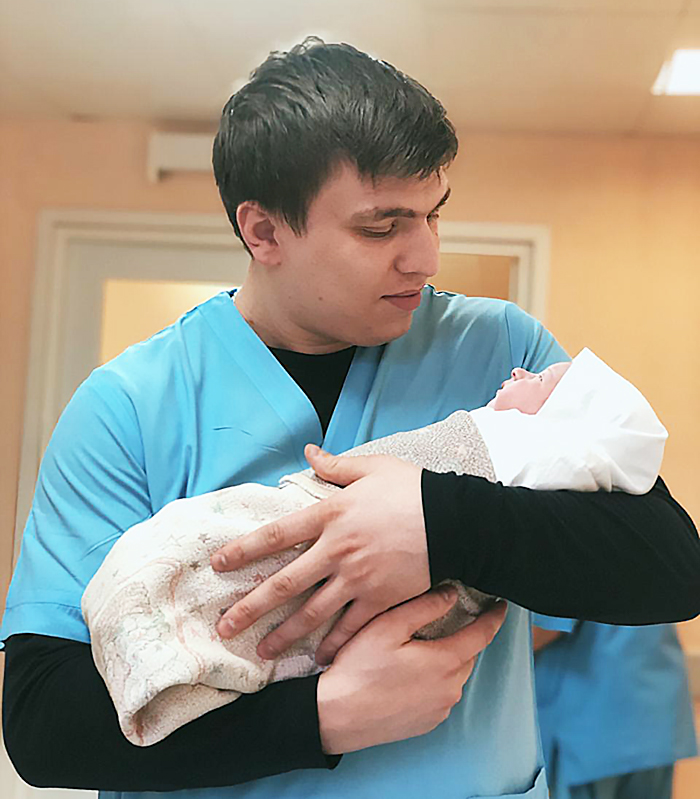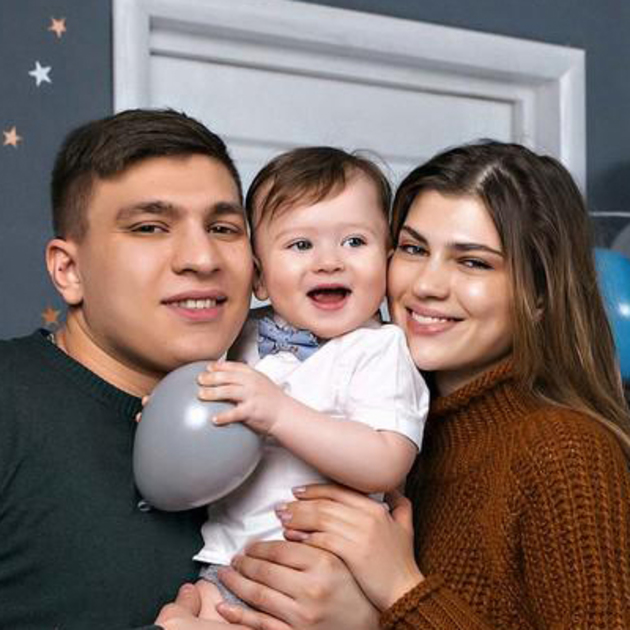Interethnic marriages are considered one of the foundations of multinational Russia. The interlocutor of Vestnik Kavkaza Victoria Rumova was born in Cherepovets, graduated from Ryazan State Radio Engineering University with a degree in state and municipal administration, and married Dargin Ruslan.
- How did your family history begin?
- We met through mutual friends, where I immediately noticed a modest, polite young man. He wasn't proudly majestic, but confident and restraint. That evening I had such an image of him - his words were well-considered, his actions were confident, groomed in communication, he had handsome manners, his thoughts were pure and sincere. I could not imagine before that love at first sight exists. But the next day Ruslan called me and, apologizing for arrogance and perseverance, said: "Living and breathing the same air with you is happiness for me, and I can’t think of any other life." It was like a girl’s dream came true - I was over the moon, my heart was thrumming, I shined with happiness and joy because my feelings were mutual.
I met my future mother-in-law in a very unusual situation. Ruslan studied in a higher educational institution of the Ministry of the Interior in Ryazan. Due to the fact that cadets' freedom of movement is very limited, they can leave the barracks only during dismissal, Ruslan asked me to wish his mother a happy birthday. Now, of course, I understand that our acquaintance with my future mother-in-law was a bride show, but I did not feel embarrassment or discomfort back then. We started talking in the kitchen - together we cooked khychins. Ruslan's relatives live as a friendly family. I have never seen such a warm family communication, support, respect and love for each other.
The path to the wedding was through overcoming stereotypes from both families. Parents at first thought that we were just young, naive. But the seriousness of our relationship has been tested by both time and distance. We survived, and our love prevailed. It was a small victory of great love.
.jpg)
- What was your wedding like?
- The wedding ceremony was held in a caucasian-European style. There were national dances, the bride’s ransom and many other beautiful traditions, one of which I especially remembered. During the wedding procession, the bridegroom takes his bride to his home, where she is met by her mother-in-law with a jug of honey. Both should try this honey. This tradition has many meanings, but the main thing is a warm welcome into the family, personifying the desire to share all the sweetest, most beautiful and most expensive things.

Wedding traditions often vary in different Dargin villages. It is about the details, but there is always a wedding dance, it is the same for everyone. My pre-wedding care included Dargin dance classes. The bride’s dance, during which the girl slowly walks in a circle, and male guests stand around and throw money, emphasizes the image of a Caucasian girl as a standard of pure beauty. The bride shows with all her appearance that she does not care about anything other than the honor of her family.
.jpg)
According to the Dargin tradition, the groom’s parents provide young people with housing, and the bride’s parents are responsible for comfort in the young family's home. Thus, in modern terms, Dargin newlyweds have all inclusive.

Another interesting feature of the Dargin wedding tradition and family life is the transfer of gold jewelry from the mother-in-law to the daughter-in-law.
.jpg)
- Should a Dargin woman wear a scarf in public places?
- The image of a Dargin woman for me is directly related to my respected and beloved mother-in-law. I don't know everything about Dargin culture, customs and traditions, but what I know I certainly respect. In any Dargin family, a woman is the personification of motherhood, meekness, beauty, modesty and grandeur. I know that being a Dargin wife is happiness.
.jpg)
- What responsibilities are considered female and which are male in your house?
- Our family honors national traditions, but we live in a megalopolis, which plays its role. As for the household issue, we have a classic European version. Of course, child care is my "territory", and I will not give it to anyone, because the joy of motherhood is one of the most wonderful feelings in the life of every woman.
The issue of working as a means of earning in our family mainly concerns the husband. He is our main provider, but our business, the distribution of confectionery products, is our common project. In my opinion, family relations do not depend on nationality, on compliance with the norms of interpersonal relations, and our family is a glaring example.






